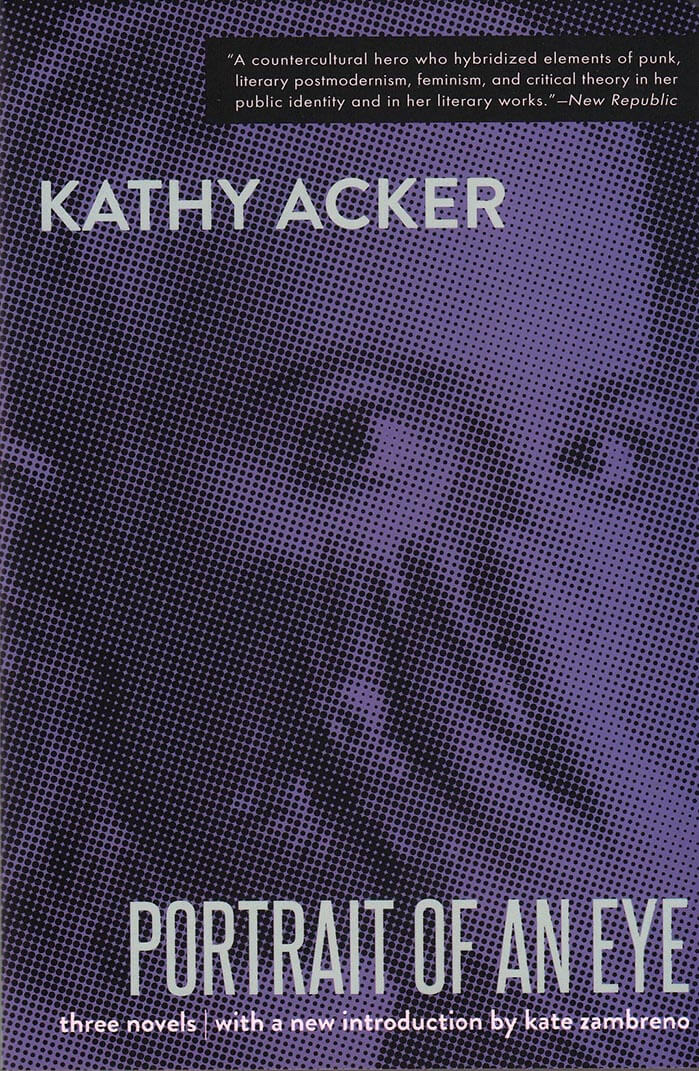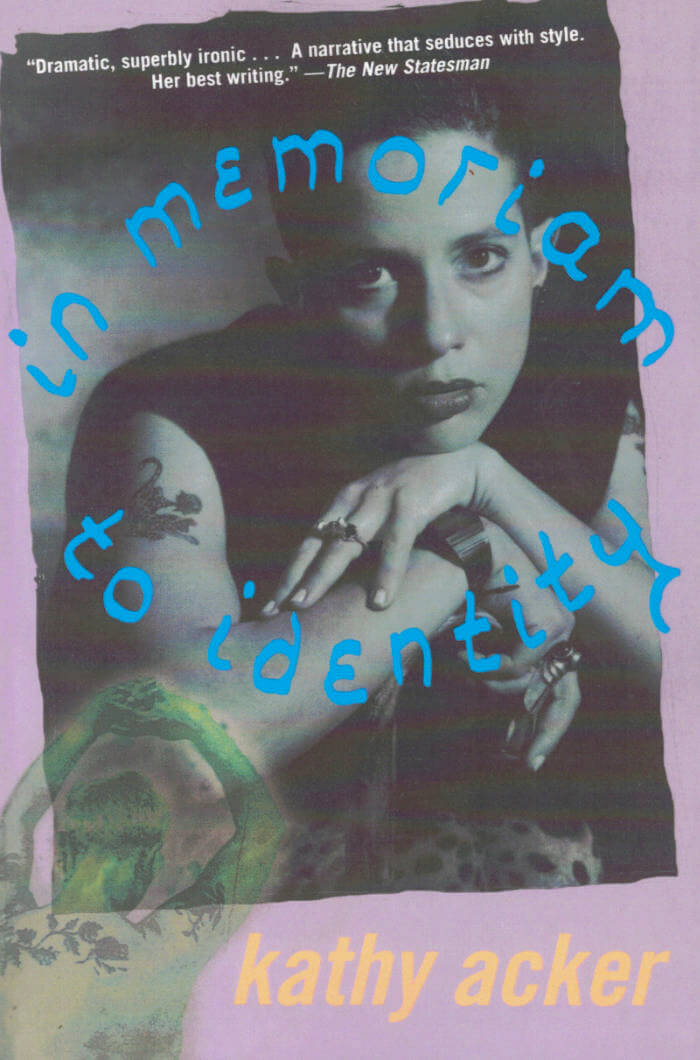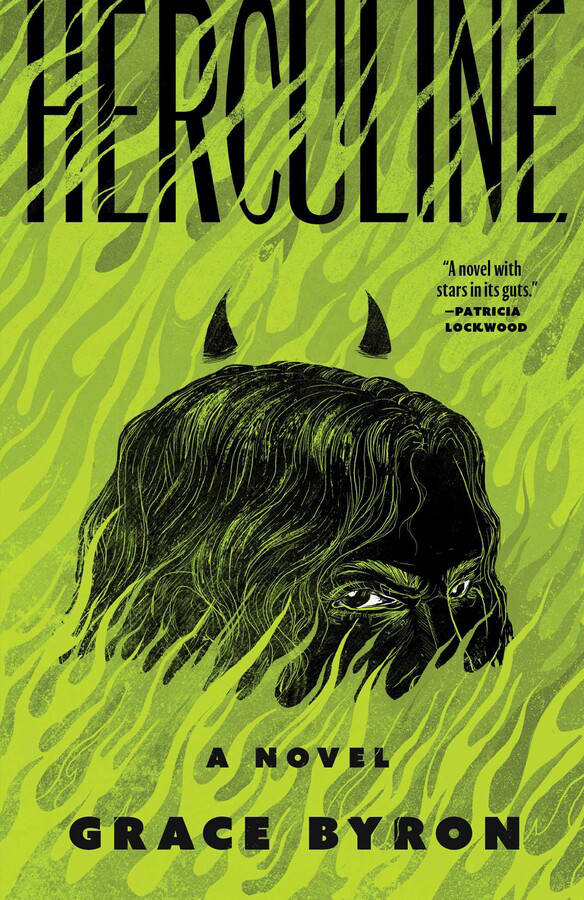
Portrait of an Eye
Three early, self-published novels from Kathy Acker reissued with an original introduction by Kate Zambreno, the author of Heroines, Green Girl, Screen Tests, and more.
The Childlike Life of the Black Tarantula, Kathy Acker's debut and the first in this three-novel collection, began as an episodic handmade pamphlet that Acker mailed out to influential writers and artists whose addresses she managed to get her hands on. In the novel, Acker steps into the biography of a Mississippi murderess who falls in love with a famous lawyer, and mixes in fragments from porn, historical romance, pulp fictions, and The Story of O. Collect with her second novel, the dreamy exploration of desire I Dreamt I was a Nymphomaniac, and her third, The Adult Life of Toulouse Lautrec, Portrait of an Eye is dive into the frenzy of sexual wanting, the search for identity, and the invention of a new literary language.
Now with an introduction by Kate Zambreno contextualizing the resurrection of these three early Acker novels, this new edition of Portrait of an Eye reminds us of all there is still to learn from Kathy Acker, a writer and artist whose work "remains radical and uncanny, entirely inimitable, a smash and grab on the history of literature" (Guardian).
Language: English







